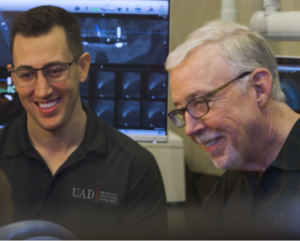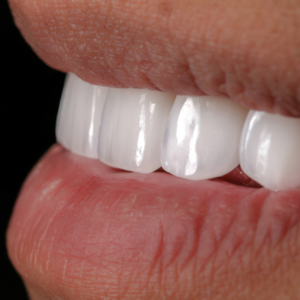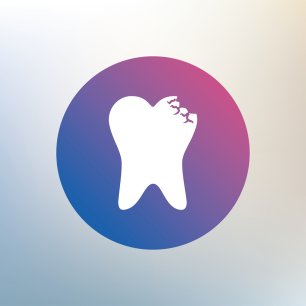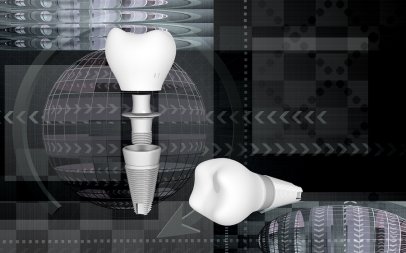What is It, and Who is a Good Candidate?
Replacing an entire arch of teeth with All-on-4 Dental Implants is an excellent option for patients who are missing all or a significant number of teeth. All-on-4 bridges look, feel, and function as close to your natural teeth as possible.
University Associates in Dentistry’s (UAD) dental office in downtown Chicago has been a recognized leader in providing the All-on-4 implant approach since its introduction fifteen years ago. In addition, our doctors have participated in the research and development of the All-on-4 treatment—right here in our private practice.
ABOUT THE ALL-ON-4 DENTAL IMPLANTS PROCEDURE
- The gold standard replacement for a full arch or row of unhealthy or missing teeth
- 4-6 implants are strategically placed to support and retain the entire arch of teeth (upper and/or lower)
- The implant placements and first set of teeth are done at the same time as the removal of the remaining teeth (which is why it’s called “teeth-in-a-day”)
- Bone grafts are not needed
- A stronger permanent set of teeth are provided after three months when the implants have fully healed and stabilized
Dr. Baer, Dr. Marcus, and Dr. Schelkopf are all recognized leaders in the field of dental implants and All-on-4 treatment, with published research, active lecturing, and consistent mentoring of other doctors on dental implant care. At UAD, our All-on-4 treatment is completed in one appointment and at once office—that includes the entire surgical treatment and the delivery of your new teeth.
WHO ARE GOOD CANDIDATES FOR ALL-ON-4 DENTAL IMPLANTS?
- Missing Multiple Teeth – If you have failing bridges or multiple decaying or missing teeth along your dental ridge, you will benefit from this procedure.
- No Oral Disease Present – Gum disease or other oral diseases pose a risk factor for implant failure. Treatment is required before undergoing implant surgery.
- Ability to Support the Implants – You should have sufficient jawbone structure and gum tissue to support the dental implants.
- No Smoking – Smoking can increase your implant failure rate up to three times. Patients who smoke must stop leading up to surgery and during the healing process.
- Committed to Treatment – The procedure does require several visits to the oral surgeon and temporary changes to your diet and habits.
- This treatment is the perfect route for getting back to smiling, functioning, and enjoying life without worrying about the discomfort of dental problems!
Conveniently for patients, our practice centralizes everything at a single office. So if you’re interested in learning more about the All-on-4 treatment or any other dental implant treatment options in the Chicago area, please set up a free consult at UAD’s all-in-1 practice! You can contact us to schedule a free consult by clicking here or giving us a call!
UAD phone number (312) 704-5511
We are located at 222 N LaSalle (in downtown Chicago)









